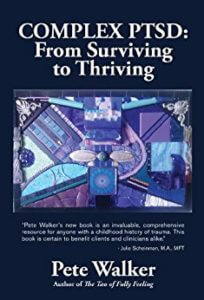“Trauma-informed care is not just a methodology; it’s a profound commitment to walk alongside individuals in their healing journey, recognising their past, respecting their present, and reimagining their future with compassion and empathy at the core.”
Understanding the foundations of trauma-informed care.
In the ever-changing environment of healthcare and therapy, trauma-informed care (TIC) has developed as a vital foundation for recognising and resolving the extensive impact of trauma on people’s lives. This approach acknowledges the frequency of traumatic experiences and their ability to influence patient behaviour, health, and well-being. As an educational tool, this blog goes into the essence of trauma-informed care, including its concepts, applications, and transformative potential for healing practices.
Understanding Trauma and its Effects
Trauma is an emotional reaction to a very unpleasant or disturbing occurrence that overwhelms a person’s ability to cope, generates feelings of helplessness, reduces their sense of self, and impairs their ability to feel a wide range of emotions. Traumatic events can range from personal encounters with violence, abuse, and neglect to large-scale disasters, war, and community violence. Trauma can have both immediate and long-term repercussions on one’s physical, mental, and social health.
The essence of trauma-informed care.
Trauma-informed care is a health and service sector strategy that assumes an understanding of the complexity of trauma, as well as an awareness of its presence and pervasive impact on people’s lives. It entails identifying the signs and symptoms of trauma in customers, patients, families, staff, and others involved in the system. More than a collection of individual interventions, TIC is a framework or philosophy that directs the behaviour of organisations and systems that deliver healing services.
“Trauma-informed care shifts the question from ‘What’s wrong with you?’ to ‘What happened to you?’, fostering a healing space built on empathy, understanding, and unconditional support.”
Trauma-Informed Care’s Five Key Principles for Safety:
Providing physical and emotional safety for clients and employees. This includes providing a safe environment in which people feel comfortable sharing their experiences and weaknesses.
Trustworthiness and Transparency: Establishing trust with clients by clear, open communication and ensuring transparency in operations and decision-making processes.
Peer Support: Promoting and promoting peer support and mutual self-help groups as essential components of recovery. This notion recognises the therapeutic value of interacting with individuals who have shared similar circumstances.
Collaboration and Mutuality: Promoting equality between service providers and recipients. This entails recognising the value of collaboration and power sharing in order to promote healing.
Empowerment, Voice, and Choice: Recognising individuals’ strengths and experiences while assisting them in regaining control of their lives. This principle emphasises the necessity of validating people’s experiences and building resilience.
Implementing trauma-informed care
Implementing a trauma-informed strategy necessitates systemic change at the organisational level, which includes a shift in culture, practices, and policies. It is necessary to train all staff members, not only clinical personnel, on how to recognise, understand, and respond to the impacts of all types of trauma. The method also advocates for incorporating trauma knowledge into policies, processes, and practices, as well as actively preventing re-traumatization.
A trauma-informed care model does not require support providers to be aware of the specifics of each person’s traumatic experiences. Instead, it necessitates a broad grasp of the significance of trauma in life, as well as an appreciation for the numerous and difficult paths to recovery.
The impact of trauma-informed care
The implementation of trauma-informed treatment has demonstrated considerable benefits in a variety of settings, including healthcare, social services, and education. It improves customer involvement, health outcomes, and service satisfaction. For service providers, it can lead to a more supportive and collaborative workplace culture, lowering burnout and secondary traumatic stress.
Trauma-informed care reflects a significant shift in how services are delivered to survivors of trauma, emphasising physical and emotional safety, trust, peer support, collaboration, and empowerment. Organisations that use this strategy can create settings in which people feel understood, supported, and valued, promoting healing and resilience. As our understanding of the effects of trauma grows, trauma-informed care appears to be a potential road ahead for individuals and communities attempting to recover from traumatic events.
At Mindful Synergi we are not only trained specifically in understanding the complexity of trauma on the wellbeing of individuals, families and communities. We also aim to deliver a service that incorporates the 5 principles of trauma informed care from intake trough to discharge. We aim to deliver holistic care that acknowledges that there are many ways to heal from the impact of trauma and we aim to provide choice of services, and person centred service delivery that focuses first on providing safety and building trust. As it is only from these foundational principles that healing from trauma can take place.
Like a good read? Our top pick for relationships and trauma
Surviving to Thriving – by Pete Walker
We think everyone needs this down-to-earth, self-help guide on their night stand. If you’ve ever felt lonely, disconnected, unwanted or disliked this is your map to unwavering self-compassion, kindness and healing.

